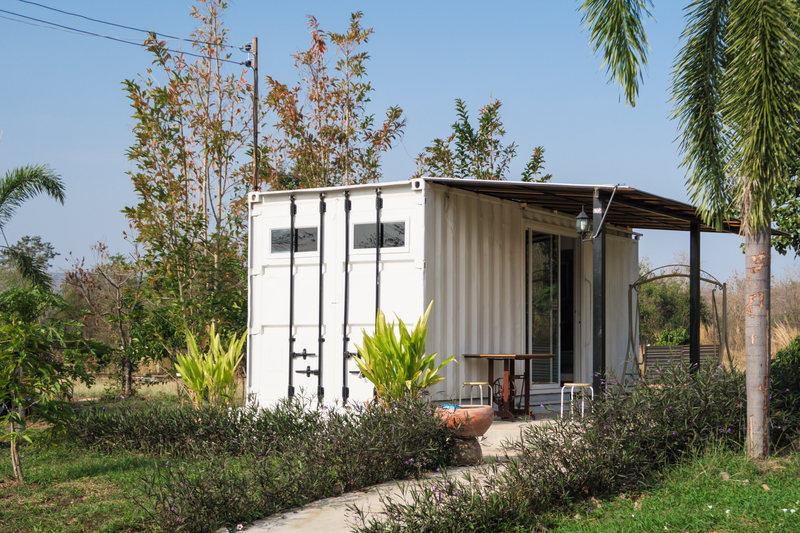Managing Bulky Waste Items Without Breaking the Bank
Every homeowner or renter eventually faces the daunting task of disposing of large, unwanted items without overspending. From old mattresses to broken furniture, bulky waste often demands more effort, space, and money than regular household trash. This comprehensive guide will walk you through cost-effective strategies for managing bulky waste items, ensuring your home stays clutter-free without straining your wallet. Learn how to handle and dispose of these items responsibly, efficiently, and affordably.
What Are Bulky Waste Items?
Before exploring affordable solutions, it's important to understand what qualifies as bulky waste. Generally, these are items too large to fit in a regular trash bin. Examples include:
- Furniture: Couches, chairs, beds, wardrobes, and tables
- Appliances: Refrigerators, washing machines, stoves
- Mattresses and box springs
- Carpets and rugs
- Large electronic devices
Bulk waste items may present challenges due to their size, material composition, and sometimes local legislation governing their disposal.

Why Proper Bulky Waste Disposal Matters
Improperly disposed bulky waste can harm the environment, clog up landfills, and even attract fines from municipal authorities. In many cities, leaving items on the curb without proper arrangements can result in penalties. Managing bulky waste affordably also supports sustainability and resource conservation.
That's why finding the right--and cost-effective--approach is crucial.
Top Strategies for Budget-Friendly Bulky Waste Management
Below are several practical and affordable methods to manage your bulky waste items. These options vary in cost, convenience, and environmental impact, allowing you to select the best fit for your needs.
1. Municipal Bulk Waste Pick-Up Services
Many local governments offer bulk item collection services either for free or a nominal fee. To take advantage of these:
- Check your municipality's website for scheduled bulky waste collection days.
- Often, you must schedule a pickup or place items at the curb during designated periods.
- These services accept most large items but may exclude certain materials like electronics or hazardous components.
Pro Tip: If your area offers annual or semi-annual "clean up days," plan to dispose of items during these windows to avoid extra costs.
2. Donation: Give Items a Second Life
Donating usable furniture, appliances, or mattresses is a win-win: you avoid disposal fees, help someone in need, and keep materials out of landfills.
- Charities like Goodwill, Salvation Army, and Habitat for Humanity typically accept large items in good condition.
- Some organizations offer free curbside pickup for bulky donations.
- Tax deductions may apply for documented charitable contributions.
The key: Ensure the items are clean and functional. Most donation centers don't accept broken or excessively worn pieces.
3. Sell or Give Away via Online Platforms
With the rise of neighborhood apps and social media marketplaces, selling or giving away large items is easier than ever--often for free or minimal effort. Try platforms such as:
- Facebook Marketplace
- Craigslist
- Freecycle Network
- Nextdoor
- Local "Buy Nothing" groups
List your item with clear photos, measurements, and condition details. Specify that buyers should coordinate their own pickup, saving you money and hassle.
4. Rent or Borrow a Truck
If you own a vehicle or have a friend with a truck, you can save significant money hauling items yourself to a local disposal site or recycling center:
- Check for community bulk waste drop-off facilities -- some offer free days for residents.
- Share the cost of a rental vehicle with neighbors for a collective dump run.
- Keep all necessary straps and protective gear on hand for safe and efficient transport.
This hands-on approach minimizes service fees and gives you control over timing and handling.
5. Consider Professional Junk Removal--Budget-Consciously
If DIY options aren't feasible, hiring a junk removal service can be convenient, but prices vary widely. To keep costs in check:
- Request quotes from at least three local providers.
- Ask about discounts for single-item pickups or combined loads.
- Check if smaller, independent companies offer better rates than national chains.
- Group bulky items with neighbors to share pickup fees.
If you have only one or two items, some junk haulers may quote a lower "minimum load" price.
6. Explore Appliance or Mattress Recycling Programs
For items like refrigerators, washers, or mattresses, specialized recycling programs can often pick up your old appliance for free or a minimal charge. Many manufacturers and retailers participate in take-back or recycling initiatives.
- Contact your utility company--some offer rebates for recycling old appliances.
- When buying a new item, ask if the retailer will remove and recycle the old one at little or no cost.
- Check local environmental organizations for mattress recycling events or drop-off sites.
Creative Cost-Saving Ideas For Bulky Waste Disposal
In addition to the mainstream solutions above, there are inventive and affordable approaches that can help manage your large junk items:
Organize a Community Clean-Up Day
Coordinate with neighbors or your homeowner's association for a group clean-up. By combining resources and sharing transportation or junk hauler fees, everyone saves money--and you foster community spirit.
Repurpose or Upcycle Large Items
Transform old furniture or materials into something useful. Even if you're not a DIY enthusiast, a simple coat of paint can breathe new life into a battered table or chair, while pallets and headboards can become garden planters or shelving units.
- Search for DIY upcycling ideas online.
- Offer scrap materials "free to a good home" - local artisans may happily collect them.
How to Reduce Bulky Waste in the Future
The most affordable way to manage largescale waste is by generating less of it. Here's how you can cut down on your future disposal needs:
- Invest in Durable, Timeless Items: Quality lasts longer. Choose furniture and appliances with a long lifespan and classic style.
- Buy Second-Hand: Pre-owned items have already been diverted from landfill, and you can often resell them in the future rather than discard.
- Rent Instead of Buy: For short-term needs (such as guest beds), consider rental options that won't become junk later.
- Avoid Impulse Purchases: Be mindful when shopping for big-ticket home items so you only acquire what you truly need.
Responsible Disposal: Key Legal and Environmental Considerations
Failing to dispose of bulky items properly can lead to fines, dumping fees, or even environmental harm. Before you act:
- Research local laws about curbside disposal and illegal dumping.
- Confirm whether appliances require special handling (e.g., refrigerant removal).
- Never abandon large items on roadsides or empty lots--this is illegal in many areas.
- Check if your community requires a sticker or permit for bulk trash pick-up.
Caring for the environment is as important as saving money. Many municipalities and recycling centers ensure materials are diverted from landfill whenever possible.

Frequently Asked Questions: Managing Bulky Waste for Less
- What items count as "bulky waste"?
Typically, items too large or heavy for normal dumpsters, such as sofas, wardrobes, mattresses, old carpets, and appliances. - Is it ever free to dump bulky items?
Yes! Watch for city-sponsored clean-up days or free drop-off events at local recycling centers. - Can I leave furniture on the curb?
Only if your city allows it--otherwise, you could be fined. Always confirm local guidelines in advance. - Who will pick up my old furniture?
Charities, city services, and junk removal companies all offer pickup options--compare their costs and schedules. - Are there eco-friendly ways to dispose of large items?
Absolutely! Donate, sell, recycle, or upcycle before considering landfill options.
Final Thoughts: Affordable Bulky Waste Solutions for Every Home
Managing large and bulky waste doesn't have to be expensive or stressful. By leveraging local services, exploring second-hand and donation options, creatively repurposing items, and staying attuned to recycling opportunities, you can keep both your home and your budget in good shape.
Remember: Research your municipal options first, communicate with your community, and prioritize sustainability whenever possible. With a bit of planning and resourcefulness, bulky waste disposal can be affordable, efficient, and environmentally friendly--helping you declutter your space and contribute to a healthier planet, all without breaking the bank.
Don't let big trash become a big headache--choose a cost-saving strategy today!